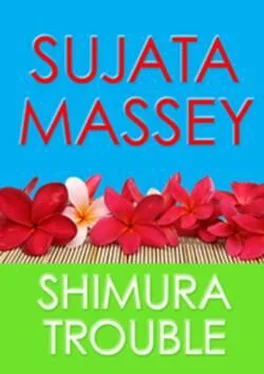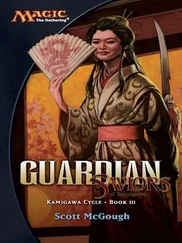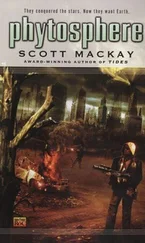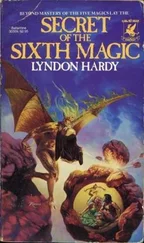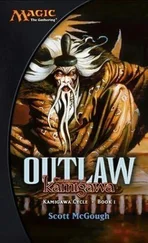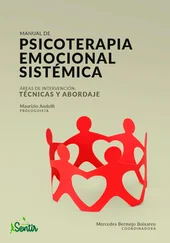Sujata Massey - Shimura Trouble
Здесь есть возможность читать онлайн «Sujata Massey - Shimura Trouble» весь текст электронной книги совершенно бесплатно (целиком полную версию без сокращений). В некоторых случаях можно слушать аудио, скачать через торрент в формате fb2 и присутствует краткое содержание. Жанр: Детектив, на английском языке. Описание произведения, (предисловие) а так же отзывы посетителей доступны на портале библиотеки ЛибКат.
- Название:Shimura Trouble
- Автор:
- Жанр:
- Год:неизвестен
- ISBN:нет данных
- Рейтинг книги:3 / 5. Голосов: 1
-
Избранное:Добавить в избранное
- Отзывы:
-
Ваша оценка:
- 60
- 1
- 2
- 3
- 4
- 5
Shimura Trouble: краткое содержание, описание и аннотация
Предлагаем к чтению аннотацию, описание, краткое содержание или предисловие (зависит от того, что написал сам автор книги «Shimura Trouble»). Если вы не нашли необходимую информацию о книге — напишите в комментариях, мы постараемся отыскать её.
Shimura Trouble — читать онлайн бесплатно полную книгу (весь текст) целиком
Ниже представлен текст книги, разбитый по страницам. Система сохранения места последней прочитанной страницы, позволяет с удобством читать онлайн бесплатно книгу «Shimura Trouble», без необходимости каждый раз заново искать на чём Вы остановились. Поставьте закладку, и сможете в любой момент перейти на страницу, на которой закончили чтение.
Интервал:
Закладка:
“Mr. Pierce,” I said, smiling. “I’m Rei Shimura. And I enjoyed every minute of the drive.”
“You may call me JP, if you like. And who is your companion?”
“Yes, Michael came in yesterday with the Transpac race.” I didn’t have the gall to lie and call him my husband. “I’m sorry I didn’t mention him yesterday. He asked to come along, because he has fond memories of this part of Honolulu.”
“So you know Tantalus? Please come in.”
“I’ve never been up this high, sir, but I did know people farther down. I went to Punahou around the same time your nephew was there,” Michael said, holding out his hand. “My name is Michael Hendricks.”
“Hendricks, Hendricks.” JP was still for a moment, and then his eyes sharpened. “The Army brat!”
“Navy juniors, or so the parents like to call us,” Michael said wryly.
“There was bad blood between you and William, wasn’t there? I can remember my brother Lindsay wanted to sic the Chinese mafia on you after you broke his boy’s nose.”
I gasped, and Michael’s face flushed.
“He needed it, frankly; the boy actually stopped beating up his sister once he knew what it felt like to be beaten to a pulp. Anyway, William’s fine and healthy in Los Angeles, though he’s regrettably on his third divorce.”
“I’m sorry to hear about that, and I assure you my behavior’s improved since then. Mostly,” Michael added with a glance at me.
JP laughed. “If you two aren’t newlyweds, I’m not eighty-five years old. Come inside. Midori is just preparing our lunch, and I’ll have her set another place on the lanai.”
I was being charmed, I realized with a sinking feeling, as the old gentleman ushered us through a grand hall with a Carrera marble floor. Aged stucco walls were decorated with many dour portraits of old white men, groups of stiff-looking children, and a lovely young Hawaiian woman looking stifled by her high-necked Edwardian blouse. The woman looked familiar, and I suddenly wondered if I’d seen another picture of her in the Bishop Museum. Princess Something-with-an-E. I would have liked to linger to figure it out, but we were being steered out of the darkness to a sunny outdoor lanai overlooking the spectacular rose gardens and a view of Honolulu’s skyscrapers.
An Asian maid in a powder-blue uniform was adding a third place setting to an old teak table. It was already laid for lunch, with antique rose-patterned china and scrolled silver. Sliced mango and papaya were fanned across ice-packed silver bowls; there was also a salad of tomatoes and herbs, a basket of fragrant bread rolls, and a platter of sliced pork tenderloin. Pretty fancy, I thought, when I’d just called yesterday afternoon, and there had been no mention of any food.
Actually, I reflected, the genteel setting reminded me of the east coast. There hadn’t even been an indication that we should take off our shoes-in fact, JP wore soft beige leather loafers. Everything was different here, in Josiah Pierce Junior’s home; I half-expected to see the New York Times or the Post on the side table, but the papers that were there were local, and folded over to show he’d been reading the stories about the fire.
The maid was sweeping the floor as we sat down, and I realized she was after some errant hibiscus blooms that had fallen off the trellises.
“This is really much more than I expected,” I said. “This lunch-it’s lovely, but we didn’t imagine you’d do so much for us.”
“I live by my own rules-or, I should say, the old Hawaiian rules of hospitality. When someone visits, you enjoy food together.” JP looked over the table at us. “And frankly, with the bad news about the fire, I’d rather put off my misery for a while and enjoy some unexpected company.”
“It’s nice for us, too,” Michael said.
“Well, when I heard your wife’s dulcet tones on the telephone, I was intrigued. Mainland accent, but a Japanese name, even after marriage. Tell me, what are your plans for the children’s surnames?”
I tried hard not to look at Michael, because this was a bit of back story we hadn’t dreamed would come up. I said, “No children yet, so I guess we haven’t had to deal with that challenge.”
“Don’t wait too long.”
“No, sir, I won’t,” Michael said, taking my hand.
“It likely isn’t a matter of you, but rather a matter of her. That’s usually how these things work.” JP’s eyes twinkled. “Though you can’t have scored any points in the fertility game wasting two weeks at sea for Transpac.”
“Do you sail yourself, Mr. Pierce?” Michael asked, after we had all finished laughing.
“Goodness, no. When I was young, I was too busy working on the plantation to have time to play at sea with a bunch of prep school boys. I was my father’s firstborn, you see. After Punahou I went straight to work, and there was no mother to spoil me or interfere.”
“You mother-may I ask what happened to her?”
“She died when I was six. That was her portrait you passed in the hallway; her name was Evelyn. Here, this is passion-fruit jelly that Midori makes from our own harvest. You must try it with the bread roll.”
“Delicious,” said Michael, smearing it across his roll.
“Do you mean the Princess Evelyn?” I asked and, after a pause, he nodded. I put together the genealogy: Josiah Pierce the First had had married a princess, and she’d borne JP Junior, the man we were having lunch with. After his wife's death, Josiah Senior had remarried, to a Caucasian woman who had fathered Lindsay Pierce. This was how Lindsay Pierce could be WASP blond, while his older half-brother was as brown as many pure Hawaiians.
“The blond woman in the other hallway portrait is my stepmother, Natalie Talbot Pierce,” JP said, as if following my train of thought. “She was originally from California, and immediately after my father’s death, she relocated to Los Angeles. She’s happier there, and now Will’s there with his children, her life is perfect.”
“Did you grow up in this house?” I asked.
“No. It dates from the 1910s, and my father did build it, but I didn’t move in until ten years after the war ended because I was involved in round-the-clock management of the plantation. Before H-1, a drive from Honolulu to the Leeward Side took half a day.”
“It still does, practically, when it’s rush hour,” Michael said.
“How do you know that? Aren’t you staying in Waikiki?”
“Actually we’re at the Kainani resort,” I said.
“Ah yes, Kainani was built on land we sold to Mitsuo Kikuchi. The fire was quite close to you yesterday, then.”
“Yes.” Michael took up the conversation easily. “We had to drive through it just before the road closed, and there was a stretch of road with fire on both sides of us.”
“We have damage on over ninety thousand acres, and the ranchers using our lands lost almost a hundred head of horses. Still, it could have been worse.” Josiah said.
“I was out jogging through the fire-damaged areas this morning, and I saw Mr. Kikuchi and your land manager, Mr. Rivera. I told them I was sad to see that old plantation village was gone, and the coffee shop as well.”
“Actually, the coffee shop’s not my loss; the half-acre it stands on we sold about thirty years ago. But the old plantation village that’s gone was part of Pierce Holdings.”
“I feel fortunate to have seen it before it burned,” I said. “The village was like a perfect, lost little world.”
“You liked the cottages?” He smiled wistfully. “They’re almost universally deplored by people now, but they were better than most housing in Hawaii at that time. A commission in the thirties established rules for the construction of plantation cottages. Depending on family size, our workers had multiple bedrooms, kitchens, and the crowing glory: indoor plumbing.”
Читать дальшеИнтервал:
Закладка:
Похожие книги на «Shimura Trouble»
Представляем Вашему вниманию похожие книги на «Shimura Trouble» списком для выбора. Мы отобрали схожую по названию и смыслу литературу в надежде предоставить читателям больше вариантов отыскать новые, интересные, ещё непрочитанные произведения.
Обсуждение, отзывы о книге «Shimura Trouble» и просто собственные мнения читателей. Оставьте ваши комментарии, напишите, что Вы думаете о произведении, его смысле или главных героях. Укажите что конкретно понравилось, а что нет, и почему Вы так считаете.
